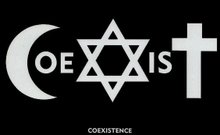Are the "Rod" Verses Literal or Figurative?
 "Spare the rod, spoil the child."-- A phrase often mistakenly attributed to the Bible, but really comes from a 1664 satirical poem by Samuel Bulter entitled Hudibras and is actually describing a sex act.
"Spare the rod, spoil the child."-- A phrase often mistakenly attributed to the Bible, but really comes from a 1664 satirical poem by Samuel Bulter entitled Hudibras and is actually describing a sex act.
The Book of Proverbs is part of the Bible's "Wisdom Literature." Using short and poetic sayings, the writers (whom most scholars believe to be Solomon, Hezekiah, and possibly Joseph, son of Jacob) convey the principles and practices of wisdom. And while these truths are timeless, they must be understood in the context of the book's intrinsic style and the culture from which it came.
Being wisdom literature, the verses naturally consist of metaphor, similes, and hyperbole. And the "rod verses" are no exception. To demand that these verses be applied literally quickly raises some problems. For one, should all the proverbs be applied literally as many spanking advocates demand the rod verses be? Should those who overindulge themselves and commit gluttony literally take a knife and slit their own throats as Proverbs 23:1-2 recommends? No sane person would teach that. The writer is making a point about the severity of gluttony and the need to restrain oneself, not advocating suicide.
Another proverb uses the rod in a clearly figurative fashion:
"In the mouth of the foolish is a rod of pride: but the lips of the wise shall preserve them."--Proverbs 14:3
Obviously there is not a literal rod coming out of a fool's mouth, but "a rod of pride" is a word picture to describe the nature of pride. Likewise, "the rod of correction" need not be a literal rod used to physically hit a child. A rod can simply symbolize verbal correction, teaching, creating boundaries, a constant influence, and giving consequences that teach a child self-control, responsibility, and right from wrong. None of these goals require resorting to hitting. All the "rod verses" (Proverbs 13:24, Proverbs 22:15, Proverbs 23:13, Proverbs 23:14, and Proverbs 29:15) can legitimately be seen in a figurative light. The "rod" is a symbol for authority, guidance, training and teaching--in other words, discipline. Plus, since the rod is most likely a reference to a shepherd leading sheep, it must be noted that a shepherd did not use a rod to beat sheep, but to guide them along the right paths and to fight off predators.
So one does not have to spank in order to take the bible seriously and remain faithful to the these proverbs. Ironically, for all the talk of "taking the bible literally," these verses are not even applied literally in Christian spanking circles. The word used for "rod" is shebet and is most often used in the scripture to refer to a shepherd's staff, walking stick, or ruler's scepter, which is rather large and thick. There are other Hebrew words for "smaller" or "thinner" rods, like the the word matteh, which is a branch or vine, or the word choter, which is a branch/twig type rod, but neither of these terms are used.
Ironically, for all the talk of "taking the bible literally," these verses are not even applied literally in Christian spanking circles. The word used for "rod" is shebet and is most often used in the scripture to refer to a shepherd's staff, walking stick, or ruler's scepter, which is rather large and thick. There are other Hebrew words for "smaller" or "thinner" rods, like the the word matteh, which is a branch or vine, or the word choter, which is a branch/twig type rod, but neither of these terms are used.
Most spanking advocates carry out spankings with their hands, a wooden spoon, a belt, a small paddle, or some other small object. But the word shebet does not call for any such instrument. If these verses are to be read and applied literally, then an actual rod should be employed. And I don't know any parents who would consider spanking their children with such a large, menacing, potentially damaging object.
The word shebet is used 36 other times in the Scriptures. Most of these uses are clearly figurative, symbolizing the authority of God, nations, people (both wicked and righteous), and the heritage of God. Almost all of these instances use "the rod" to convey the image of a shepherd's staff or a ruler's staff, and only in a couple of instances is the rod used in connection to literally striking another person. And each of those instances are found in the Old Testament and are addressed to fully grown adults.
Another interesting point is that the proverbs in question are addressing a parent using the rod on their "child." But the Hebrew word here is na'ar, which literally means "he who shakes off" or "he who shakes himself free." It is most commonly used to describe teenage boys or young men who have yet to marry. The very first chapter of proverbs is addressed to a "na'ar," which is rightly translated there as "young man." The only time this term is ever applied to a baby or young child is in two extraordinary cases. Moses is called na'ar only after he is sent down the river and found by the Egyptians. This makes sense since he was "shaken loose" from his real mother at an abnormally young age. We also find that Samuel as a young boy is called na'ar after his mother takes him to live at the temple. Again, here we have a child being shaken loose from a parent before the normal age. Samuel Martin, author of "Thy Rod and Thy Staff They Comfort Me," points out that:
"This word is found over 200 times in the Bible.There are some poetical uses of this phrase 'na’ar,' but the vast majority of these texts refer to younger men or women who have yet to marry."
Also, Proverbs 23:14 declares that beating a child with the rod will save his soul from hell. This is also not a literal phrase, nor do spanking advocates take it literally, since we (and they) do not believe salvation can be achieved through physical punishment or any other means besides God's grace through Jesus Christ. This is just more evidence to the figurative nature to these proverbs.
So if one insists that these rod verses are literal and call for the corporal punishment of children, then they must use a literal shebet rod to do it, only use it to hit a male child who is a teenager or young man still under his parents' care, and teach that the very act of hitting can save a person from hell. Most spanking advocates start spanking children as young as four months and recommend stopping by time the child reaches the age of 6 through 9. But there is absolutely no biblical basis for this. It may be wise to reconsider the meaning behind the rod imagery in Proverbs, because the so-called literal reading is neither taught literally, nor carried out literally. But the meaning behind these metaphors are full of wisdom and truth to be lived out by parents committed to their children and their God.
To read a more in depth analysis on the words shebet and na'ar (and the non-spanking perspective in detail) see Samuel Martin's book, which can be read for free online, "Thy Rod and Thy Staff They Comfort Me: Christians and the Spanking Controversy.
Also see Parenting Freedom and Arms of Love Family Fellowship for some good resources.
The next post will focus on another lens through which The Book of Proverbs (and the entire Old Testament) should be viewed through: The New Testament.














7 comments:
thanks for the links...
i remember the toolbox on AOLFF being extremely useful effective with my little guy after we stopped using spanking for discipining him. gonna click over for a review. :)
good stuff.
Excellent post. I should mention that Samuel Martin's book is no longer available at that link in its entirety but he will send a PDF of it upon request as explained here.
I love this post! I am a conservative Christian and I live in the South. I grew up hearing these verses. I was spanked (non-abusively. I know that is possible). I was a submissive child to my stricter parent and a hellion to my parent on the other extreme. My parents were divorced so I was like night and day for the longest. I thought spanking was THE tool for awhile but then I realized it stopped working at age 6 and actually made my son more rebellious! That's when I started looking into alternative discipline methods. Now, I've decided to never spank any future children. My son and I had a talk about this and why I changed my view. One size fits all parenting doesn't work. Children are unique and they change all the time. I believe people can spank without being abusive. I just don't think it's a good idea and I pity the child who is only disciplined this way. I also think the "Pearl" method of spanking to break a child's will is super abusive and dangerous. Children have died because of that method. Children should never be bruised or marked. I can say that about my father and when I spanked, my Dad never left a bruise and neither did I. I always got three swats and then we talked and hugged after. He never spanked me for mistakes, only rebellion. I wasn't scared of him or of talking back. If a child is terrified to talk back and they are too compliant, I would really suspect child abuse. Kids aren't supposed to be robots. I think so many good and loving parents, spank because they take these verses out of context and because the tradition is so embedded in them. I know I was that way before. I praise God that He's teaching me grace based parenting. I'm slowly seeing my son's heart change for the better. God bless!
Just wanted to point out for people finding their way to this blog post, Samuel Martin's book (along with lots of peaceful parenting information) can be found at the website www.whynottrainachild.com
Direct link to "Thy Rod and Thy Staff They Comfort Me: Christians and the Spanking Controversy" - http://whynottrainachild.com/wp-content/uploads/2013/06/Thy-Rod-And-Thy-Staff-They-Comfort-Me-Mar-2013.pdf
Nice play and very interesting blog well done keep it up.
Play by Dr. Mildred Summerville
very interesting stuff! the hebrew text for Proverbs 13:24 and the child in question actually refers to the male child ("ben" in Hebrew)...so does this mean parents should literally only spank their male children and only with a rod?? I mean, if we're gonna go literal and all....:-)
Great readingg your blog
Post a Comment